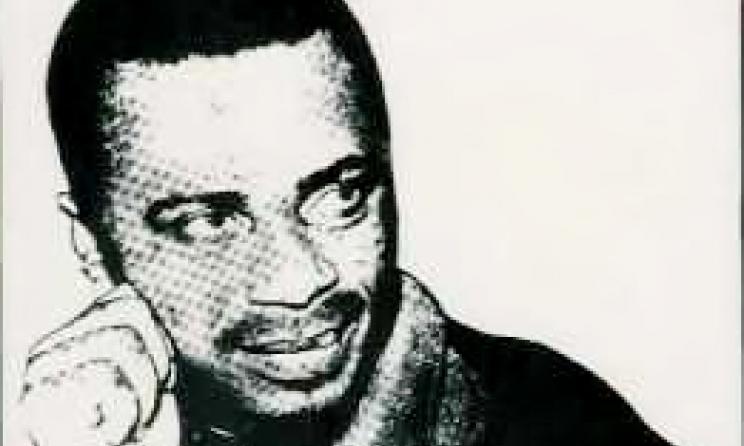Among the musicians that dominated the music scene in Nigeria in the 1960s, the late Cardinal Rex Jim Lawson is believed to be the most outstanding. In his time, his contemporaries could not match the touch he added to highlife, a music genre that morphed from the foxtrot and calypso with Ghanaian rhythms known only among the local African aristocracy in the mid-19th century to dance and guitar bands that all classes of the society could relate to.
Rex Lawson was in his 20s when he became a household name in Nigeria. He was an emotional and philosophical singer who displayed mastery in conveying deep meanings through the trumpet, the alto saxophone and his haunting voice.
At the time he held sway, Rex Lawson was recognised as the people’s artiste because of his ability to compose and sing in different dialects. He sang in Efik, Kalabari, Izon, Igbo, several Ghanaian dialects and Pidgin English. In the 1960s his records came in quick succession and were played back to back on Radio Nigeria, besides several live performances he did in Radio Lagos studios. His songs were party favourites of the time and were loved by even those who did not understand the dialects he sang in. Yet, his songs dwelt on family values, love, hard work and morality.
Early Life As A Sickler
Born as Erikosima Jim Lawson on 4 March 1938, his father was of the Kalabari ethnic group in present-day Rivers State while his mother was an Igbo from Owerri, Imo state. It is said that his name, pronounced as ‘Eriko-sima’, actually means, ‘do not name this one’ because of his father’s conviction that the sickly boy would live beyond infancy and the prevalent ‘Ogbanje’ culture at that time. A pattern of deaths had claimed his first three children. At the time, the young Rex was battling severe smallpox infection. His mother was however determined to see him live. She was said to have sought the assistance of medicine men from outside the Kalabari community for treatment, this resulted in the mutilation of his toe to mark him in case he returned.
Finally, her efforts paid off as Rex survived and lived beyond infancy.
Foray Into Music
After his primary school education in Buguma, Rex Lawson is said to have rejected his father’s suggestion and plea that he proceed to high school, and perhaps, the university. For him, going to school would either slow or ultimately derail his plans to become a great musician. Mrs. Daba Lawson, his elder sister, also joined his father to plead with him for a change of heart, but he rebuffed their entreaties.
It is recorded that Daba’s husband, who was a pastor in the church he attended in Buguma, noticed his budding talent, enrolled him in the church band, and taught him trumpeting. At that time, the young Rex was also a member of the music band of Christ Army School, Bakana – Kalabari along with the late Sunny Brown who would later become his sidekick and the best trumpeter in the group.
Most of the melodious trumpeting in Rex’ songs are believed to have been performed by Brown who in a later interview confessed that while he was good with the trumpet, he could not match Rex’ haunting voice.
From Buguma, Young master Rex made his way to Port Harcourt and subsequently found a place among the band boys of the popular Lord Eddyson who was then the leader and owner of Starlight Melody Orchestra.
Rex would later move to Lagos, which was the heart of the Nigerian entertainment life.
He has a short stint in Yaba, Lagos where he played with professional heavyweights such as Sammy Obot, Bobby Benson, Chris Ajilo, and Victor Olaiya. After which he left for Ghana to further improve on what he had learnt from these highlife greats.
On his return to Nigeria in the early 1960s, he formed the Mayor’s Band, which later became known as the Rivers Men.
The band had Sunny Brown credited as the best trumpeter in the group and Tony Odilli who played the conga and is the only surviving member of the band, among others. They were an instant success and in high demand. They received invitations to perform across the country, even extending to neighboring Cameroun and Forte Lamy in Chad.
From Pastor To Bishop To Cardinal
As his fame grew, so also did his teeming fans give him befitting titles. At a point, he was nicknamed Pastor Jim Rex Lawson, then Bishop, before finally taking on the title ‘Cardinal’. In an uncut interview on Voice of America (VOA) recorded for music specialist Leo Sarkisan in August 1965, Tunde Sowande, the Nigerian interviewer, asked Rex how he came about the title Cardinal. His reply was that his fans gave him the nickname because of the way he performed religiously.
His body was taken to the Eku Hospital in Warri where he was confirmed dead on arrival. The next day, the body was repatriated from the Hospital and brought back to Port Harcourt by the Alfred Diete-Spiff administration. Information about the late musician’s death threw the entire community into mourning when it came.
Though it is customary for the bodies of indigenes of Buguma to be interred in a massive expanse across the river, the military authorities at the time insisted Rex be buried in the town. They even wanted the body to be interred in the town square but the community objected, arguing that it was not customary. A compromise was finally reached and a final resting place was selected in a conspicuous part of the community. On the site of the original resting place now stands a bronze statue of him holding his trademark trumpet.
Legacies
Though a street is named after him in Borokiri, a suburb of the city of Port Harcourt just south of Old GRA, other recognitions accorded him are the setting up of a Rex Lawson Chair in the music department of the University of Port Harcourt in 2012. The department also organises a yearly highlife event that brings music lovers from far and near to the institution to share ideas and reflect on the legacy of the late music icon.
Under the current administration of Governor Nyesom Wike, the Rivers State Ultra- Modern Cultural Center in Port Harcourt was renamed Rex Lawson Cultural Center. The Ooni of Ife, Adeyeye Enitan Ogunwusi who is also a Rex Lawson fan, was in attendance and did the inauguration on Saturday, June 2, 2018.
His music is loved to this day in Nigeria. His songs are regularly performed and danced at live band shows in Nigeria, and a number of young musicians have remixed some of his old hits, and his relevance continues to be felt. The single “Sawale” was a hit all over Africa and has been remixed in various Africa countries like Ethiopia and also by popular highlife maestro Flavour N’abania to make the popular hit song, “Nwa Baby (Ashawo)”.
AFRICA DAILY NEWS, NEW YORK










